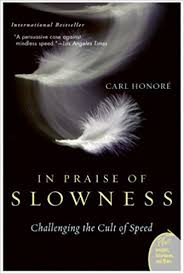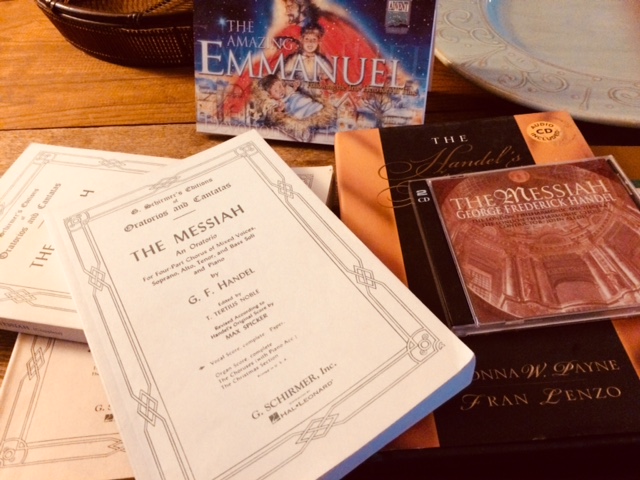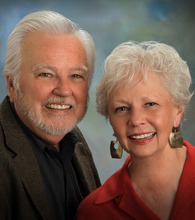Meditation Has a Mind of Its Own
For Christmas 2017, due to the fact that Hungry Souls was offering four Advent retreats of silence, I had decided to do minimal decorations and concentrate on an inward Christmas experience. My plan was to listen to Handel’s Messiah with the score in hand. In fact, I ordered 10 tickets to the nearby Wheaton College Christmas Musical when I noticed the email advertising “The Messiah: Prince of Peace.” I have 10 scores of Handel’s Messiah, which we use for a listening exercise for participants in our Advent Retreats. One quiet room; one score in hand; one CD on a boom box and two hours just to listen. However—because we are always so busy running the retreats, then recovering from the retreats—I never have had the time to experience this unhurried musical meditation myself. This year, this year would be different, I vowed. The local college was offering the Messiah and I would get enough tickets and bring enough musical scores to share the experience with my family—eight of whom joined me in Edmond Chapel on the nearby campus. Soon after getting into our seats and juggling my winter coats, gloves, purse and eight scores with a title page reading: THE MESSIAH that I had time to read the evening bulletin. It was only then that I realized the evening would not be dedicated to The Messiah but was a Christmas musical recital given by students and faculty of Wheaton College’s music department. I spent the first 10 minutes fuming that anyone could casually advertise that particular title “Messiah: Prince of Peace” for an evening event in this busy holiday season. Then I spent the next 10 minutes inwardly berating myself, the daughter of a church musician (head of the music department at Moody Bible Institute), for stupidly buying tickets to anything that was NOT billed as Handel’s The Messiah. Somewhere around here, David nudged me with his elbow and whispered, Just enjoy the music for the rest of this evening. So I did, comforting myself as I sat there with the thought that I had a CD of the whole oratorio at home and would just move this frustrated listening event to the rest of my planned inner Christmas journey. HOWEVER, it appears my CD player is broken. No problem, I thought, determined not to get into a frit about this little detriment. I'll just use the DOT. “Alexa,” I commanded. “Play Handel’s Messiah.” She did. She played the Hallelujah Chorus by the Chicago Symphony with Solti conducting. I tried again. “Alexa, play the whole Messiah.” She obliged, playing the Hallelujah Chorus by the Chicago Symphony with Solti conducting. Beautiful, but a very impartial musical experience as far as my thwarted plans were going.
Next, a text to a son: “How can I get Alexa to play the whole piece? My CD player seems to be broken.” A text back—in fact, many texts back. I could purchase a Spotify or Amazon account for $14.99 a month. Then next, a FaceTime call as he walked me through a diagnostic of the CD player's ills, just in case I hadn’t set the controls correctly. At his command, I pushed this button, moved the mobile camera, then pushed that button, then re-plugged a cord. No response. Yep. It appeared to be blasted. Son’s question: Did I have headsets for my smartphone? Son’s suggestion: If I used my phone and ear buds, I could pay for the Messiah to be downloaded. Good idea: I have ear buds, but I also have two CDs of the Messiah—one of them Black Messiah (rendered in a Gospel music style). I have 10 printed scores. Also, David's classical music library including Handel (vinyl RPMs) sits stacked on a top shelf in the listening room. I have a book with Tim Botts’ beautiful calligraphy, illustrating phrases from the Messiah and a really lovely family Advent book of meditations built around readings, Scriptures out of the Messiah for each day and printed sections of the musical score. Frustration was mounting. Actually, I did not want to put any money out when so much had already been expended (not to mention the $100 for ten tickets to the Wheaton College Christmas concert—eight of which were used). Finally, I stopped and prayed about my little meditation dilemma. Certainly this was not an item at the top of the world list belonging to the Divine, but perhaps He would assign some angelic assistance. Then from nowhere: Wonder if Alexa can play the Overture from the Messiah? Yes, I discovered she can! (London Philharmonic.) And I can take my Bible and read the portion of Scripture for each aria. And I can follow along in my family Advent book and open Tim Botts’ lovely calligraphy for a visual accompaniment. And I can read the aria from my printed score. And I can write down the Scripture passage quoted in the music in my journal. Wonder if Alexa can play the first aria—“Comfort, Comfort Ye My People”? Yes, she can! London Philharmonic again. So instead of one sit-down, this has become an extended spiritual experience stretching through my entire day, going beyond Christmas into the month of January. I anticipate I will be listening all the way through Lent into Easter. (In fact, beginning with March 23, 1743, Handel performed this yearly in London, giving freight to the fact that the composer’s intent was not to compose a Christmas oratorio only.) My journey, extending from the original idea of a one-time sit-down with score in hand, is now becoming one of the richest Christmas meditations I've ever had. “Alexa. Play, ‘And the Glory of the Lord’ from Handel’s Messiah.” Altos: “And the glory, the glory of the Lord…” Bass, Tenor and Soprano: “And the glory, the glory of the Lord…” Alto: “Shall be re-veal-ed…” Tenor and Soprano and Bass: “And the glory, the glory of the Lord, shall be re-veal-ed. Re-veal-ed.” The entire work was written between August 22 and September 14, 1741—24 days—and was performed at a charity benefit in Dublin on April 13, 1742. Charles Jennens, the lyricist who chose the Scriptures for Handel’s masterpiece, wrote, “I hope Handel will lay out his whole genius and skill upon it, that the composition may excel all his former compositions, as the subject excels every other subject. The subject is Messiah.” That it has certainly done. So what have I discovered as I slowly make my way, commanding Alexa, setting my score upon the kitchen counter that holds the DOT, looking up the Scriptures being sung, and following with my eye the musical notes on the page (wondrous) and the words traversing across the clefs, everything dancing in black dots on the page, accompanied by the chorus and orchestra of the London Philharmonic Orchestra? What have I discovered? I have learned that good meditation takes a long time to unfold, to grab the cusp of deepest meaning, and that I rush through life—perhaps this is one of my greatest sins. I am learning that beauty, goodness and truth need space and attention and cannot be simply relegated to a list of to-dos to be checked off at the end of a day. (Listen to the Messiah, write out meaningful Scriptures: Check. Check.) No. Meditation must be tasted, savored, chewed upon. Then, then, it will take us where we have never thought of going. Then, then the fog of life with its rush here/hurry there, with its sound and fury, with the inevitable the-more-you-do-the-more-there-is-to-do pulling and shoving and pushing and piling, cannot interfere. This is because meditation has a mind of its own, and given half a chance, then half a chance again, given hours, given a morning or two or three purposeful days of being still, of listening, of hearing, of knowing, given the opportunity to surprise us, will take us places inwardly that we never dreamed possible. I have learned that debilitated as I am right now by some kind of fatigue syndrome, this physical slowing is a huge gift in that it is giving me enforced pauses, making me contemplative again, giving me an opportunity to memorize the beautiful passages chosen by Charles Jennens some 267 years ago for George Frederick Handel. No. 3 — AIR FOR TENOR “Every
valley shall be exalted, shall be exalted, shall be exalted, and every
mountain and hill made low; the crooked straight, and the rough places
plain, the crooked straight, and the rough places plain…” “Be still and know—” Are you giving meditation the opportunity to pull you into places you would never choose to go? Are you ready to be glad (GLAD!!) that you have been pulled, sometimes against your will, but always outside of your own human planning into a deeper, richer, more beautiful and true understanding of … the Messiah? “He was despised, despised and rejected, rejected of men, a man of sorrows, a man of sorrows, and acquainted with grief, a man of sorrows, and acquainted with grief. He was despised, rejected, He was despised, rejected of men; a man of sorrows and acquainted with grief…” No. 23 — AIR FOR ALTO "Be still and know that I am God." How little we know. How little I know. NOTICESSpring Cleaning for the Soul |
 Karen Mains Are you ready to be
glad (GLAD!!) that you have been pulled, sometimes against your will,
but always outside of your own human planning into a deeper, richer,
more beautiful and true understanding of …
the Messiah?
BOOK CORNER
 In Praise of Slowness: Challenging the Cult of Speed by Carl Honoré
The flap copy explains the content of this book: “We live in an age of speed. We strain to be more efficient, to cram more into each minute, each hour, each day. Since the Industrial Revolution shifted the world into high gear, the cult of speed has pushed us to a breaking point. Consider these facts: Americans on average spend seventy-two minutes every day behind the wheel of a car. … Living on the edge of exhaustion, we are constantly reminded by our bodies and minds that the pace of life is spinning out of control. In Praise of Slowness traces the history of our increasingly breathless relationship with time and tackles the consequences of living in this accelerated culture of our own creation. Why are we always in such a rush? What is the cure for time sickness? Is it possible, or even desirable, to slow down?” I have ordered five copies (used-book vendors) of In Praise of Slowness and would love to go on a journey this year with others who want to slow down, who want to recover from “time sickness” and who desire a deeper relationship with God but can’t seem to make the space for that spiritual journey. Are there five pilgrims out there who would
like to journey on this adventure with me? If you are interested, I’ll
send you a copy for $10 to pay for the book cost and postage. We’ll
figure how we are going to share our joint journey into living more
slowly and what we learn from that effort. Interested? Email me at karen@hungrysouls.org. |




